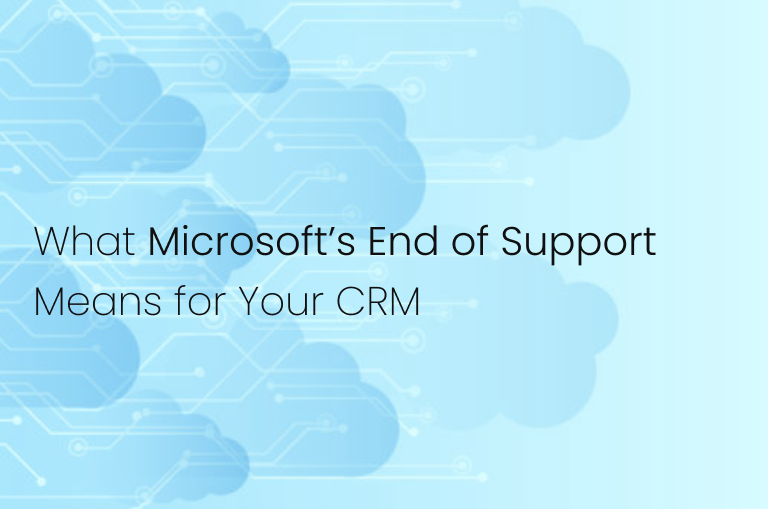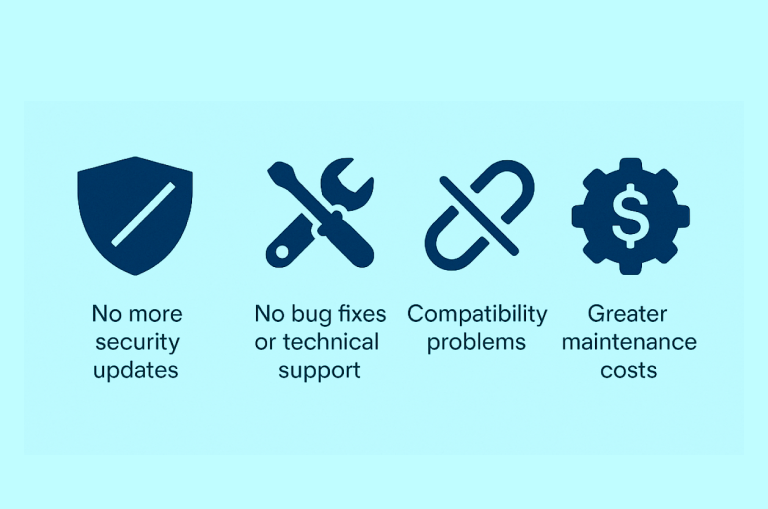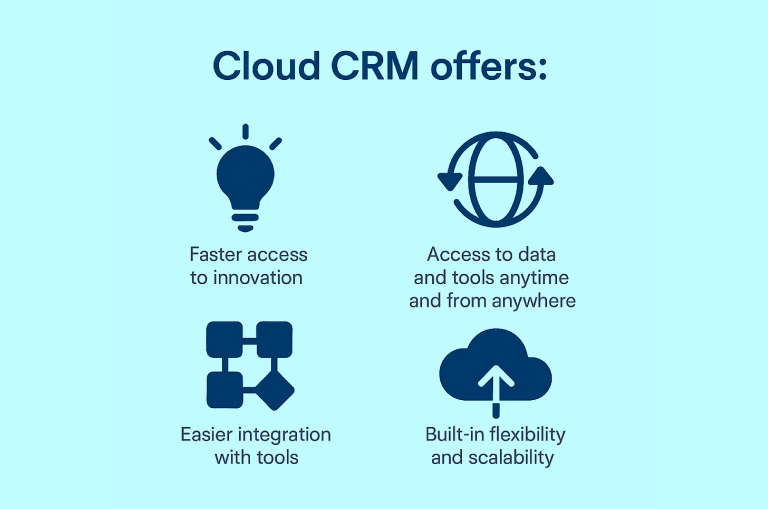What Microsoft’s End of Support Means for Your CRM

Time is running out for organisations that are still relying on legacy on-premises Dynamics CRM systems. With Microsoft phasing out support for older CRM platforms, many businesses now face a pressing decision. But this is more than just a technical shift. It is a rare chance to modernise operations, increase efficiency and strengthen customer relationships through the cloud.
What Does 'End of Support' Actually Mean?
Let’s cut through the noise. When Microsoft ends support for a product, like it has for Dynamics CRM 2016 and earlier versions, it is not just about no longer receiving the latest features. It means:
-
Your CRM will no longer receive security updates, leaving your system increasingly vulnerable
-
There will be no more bug fixes or technical support, which puts extra pressure on your IT team
-
Compatibility with other Microsoft services and modern integrations will become unreliable
-
Maintenance costs will rise as more workarounds and custom fixes are needed to keep things running

Microsoft officially confirmed that Dynamics CRM 2016, including version 8.x, reached the end of mainstream support on 13 January 2021. Extended support will end on 14 January 2026
(Source: Microsoft Learn - Dynamics CRM 2016 Lifecycle).
If you still use an older version, you are already working with unsupported software. For many, that final deadline is uncomfortably close.
Why Moving to the Cloud Is Not Just Inevitable - It Is Strategic
Migrating to the cloud is not just about staying current. It is about becoming future-ready.
With Dynamics 365 in the cloud, businesses gain access to a constantly evolving platform that integrates sales, customer service, marketing, and more, all natively integrated and powered by AI. Microsoft regularly rolls out new capabilities, ensuring your organisation stays ahead without the disruption and cost of major upgrades.
Cloud CRM offers:
-
Faster access to innovation through features like Microsoft Copilot for Sales
-
Access to data and tools anytime and from anywhere, which supports hybrid and remote work
-
Easier integration with tools your teams already use, such as Microsoft 365, Teams and Power BI
-
Built-in flexibility and scalability to grow with your business

In short, the cloud is now the foundation of modern CRM.
Addressing the Fear: Migration Sounds Hard
We understand that moving your CRM system can sound complex, expensive, and risky. While that is a common concern, it does not reflect the full picture.
Microsoft’s official migration guidance outlines a clear, structured approach to moving from on-premises to cloud CRM.
(Source: Migration Overview)
You can safely and in stages move your data, core processes, and key customisations. In many cases, the migration also creates an opportunity to reimagine workflows, remove outdated customisations, and simplify operations.
Some key points to know:
-
Microsoft FastTrack offers structured support and tools for cloud migration
(Source: FastTrack Migration Guidance) -
Common challenges, such as legacy code or outdated plugins, often have modern, supported alternatives
-
Many organisations use this time to clean up technical debt and align their CRM strategy with their current goals
You do not have to move everything at once. Depending on your organisation's size and needs, a phased or hybrid approach may work better.
A Wake-Up Call for IT Leaders
For CIOs, CTOs, and Heads of IT, this is not just a product phase-out. It is a rare chance to lay a stronger foundation for your business. Continuing to rely on unsupported systems creates growing security and compliance risks. It also prevents your teams from accessing the tools they need to perform at their best.
Cloud-based Dynamics 365 enables better user experiences, smarter insights, and more personalised customer engagement. These are not just technical improvements; they are strategic upgrades that directly impact performance and customer satisfaction.
And let’s not ignore talent. Skilled employees expect modern tools. A dated system can make it harder to attract and retain the people you need.
The Time to Act Is Now
January 2026 may seem far away, but successful migrations take time. Planning, preparing your data, testing, training users, and confidently going live do not happen overnight. Waiting until the last moment often means rushed decisions, missed opportunities, and higher risks.
Organisations that start early tend to complete the migration on their own terms and with better results.
At ARP Ideas, we have helped businesses of all sizes successfully migrate from on-premises Dynamics CRM to the cloud. We make the process smoother, more secure and aligned with your business goals. Whether you are just exploring your options or ready to make a move, we are here to support you every step of the way.
Learn more about our Microsoft Dynamics 365 services here:
👉 https://arpideas.com/en/services/microsoft-dynamics-365-delivery-services

